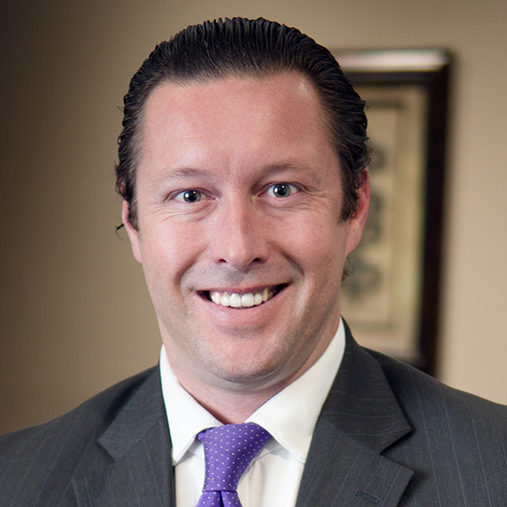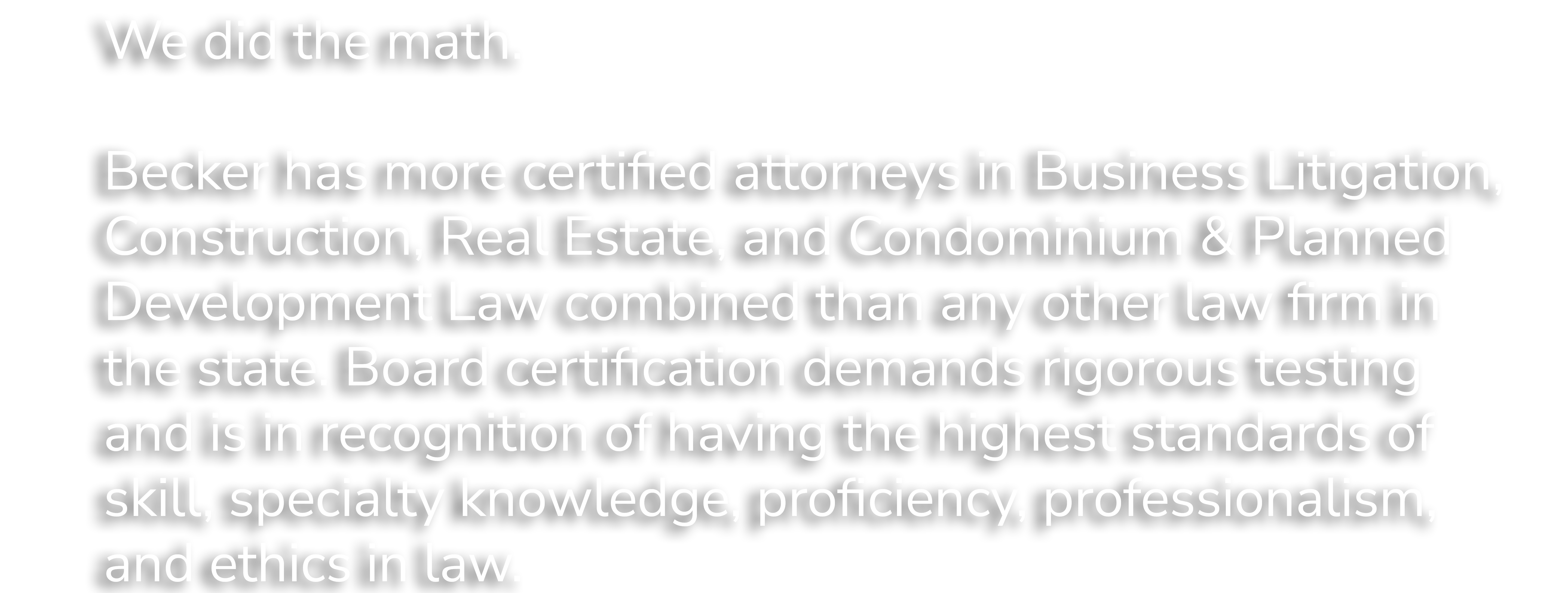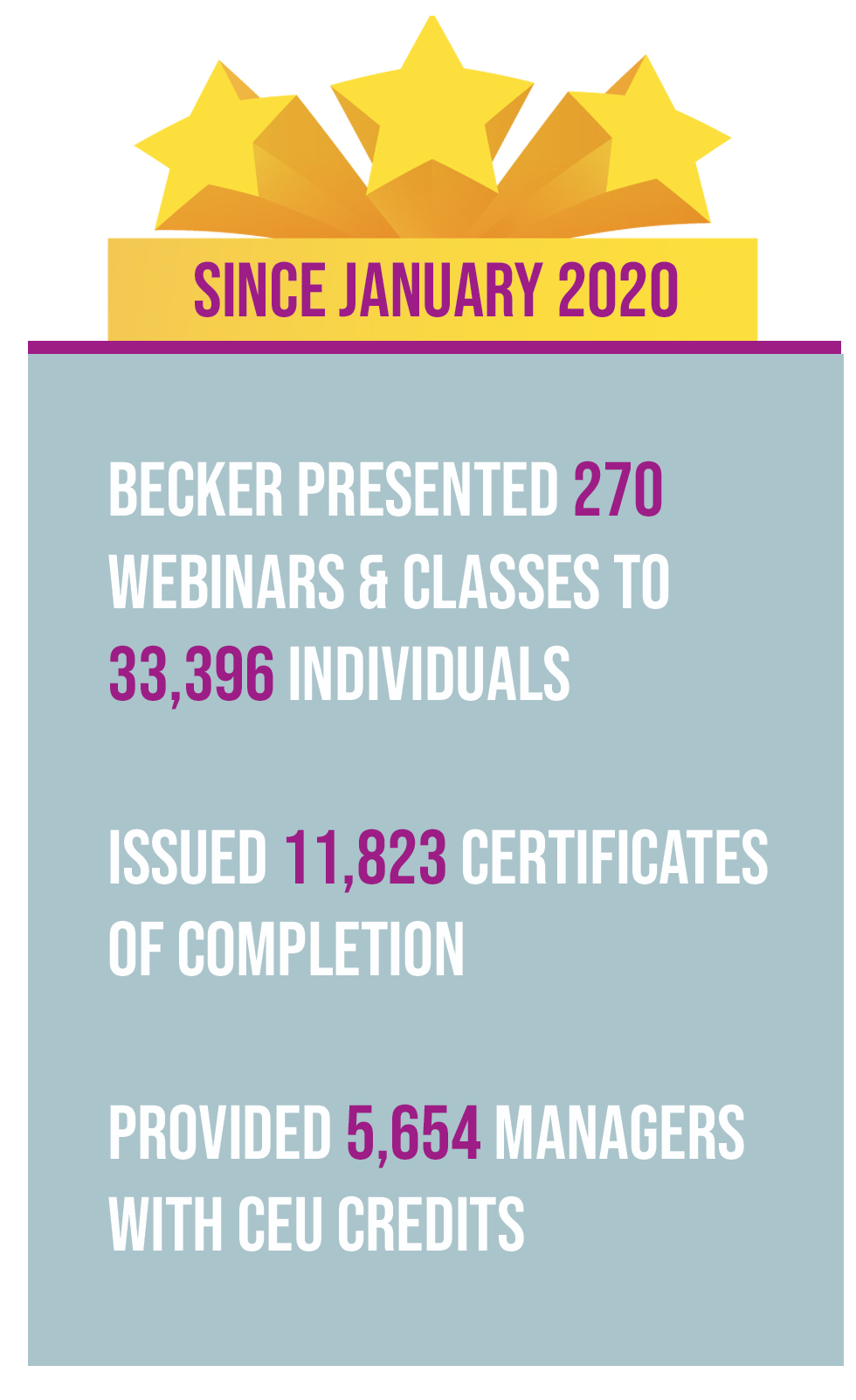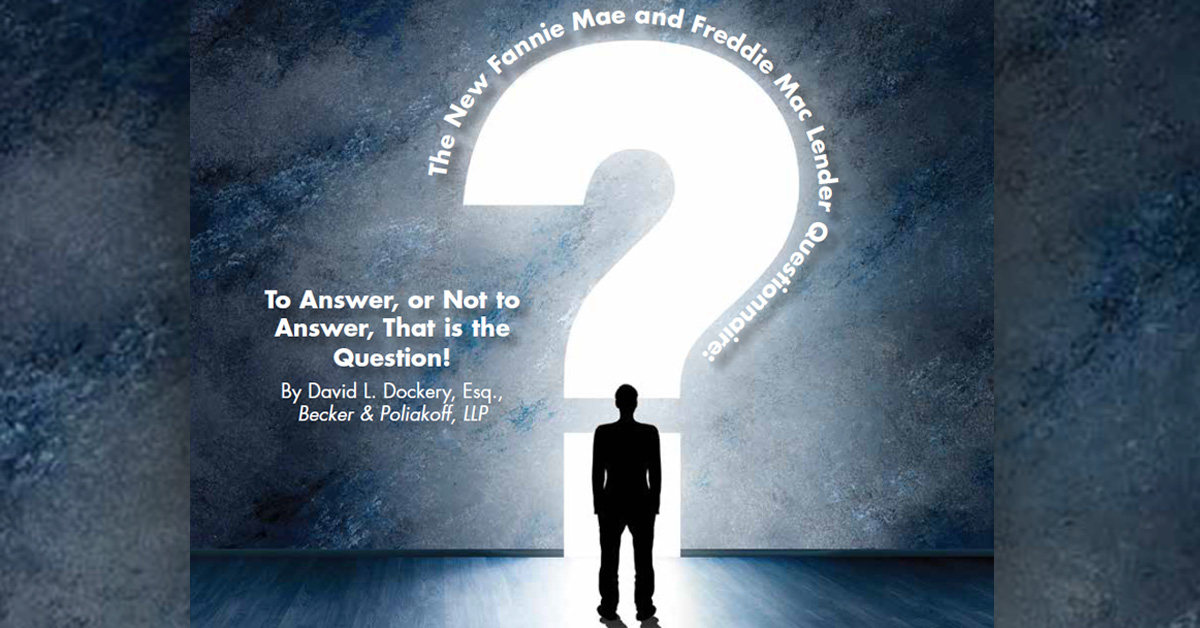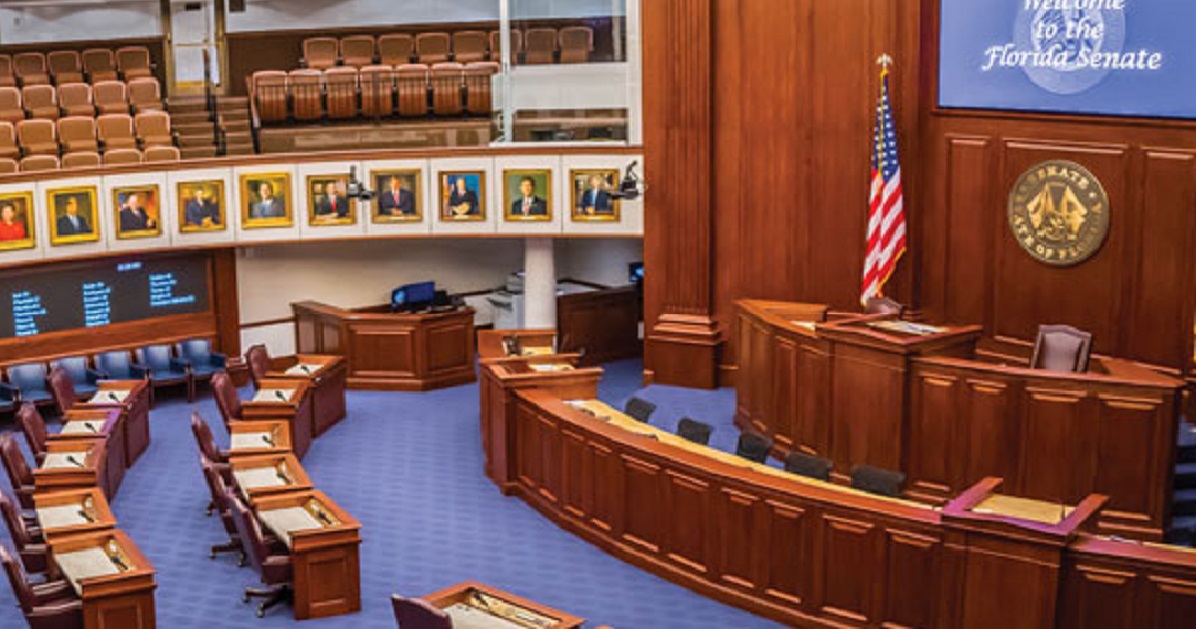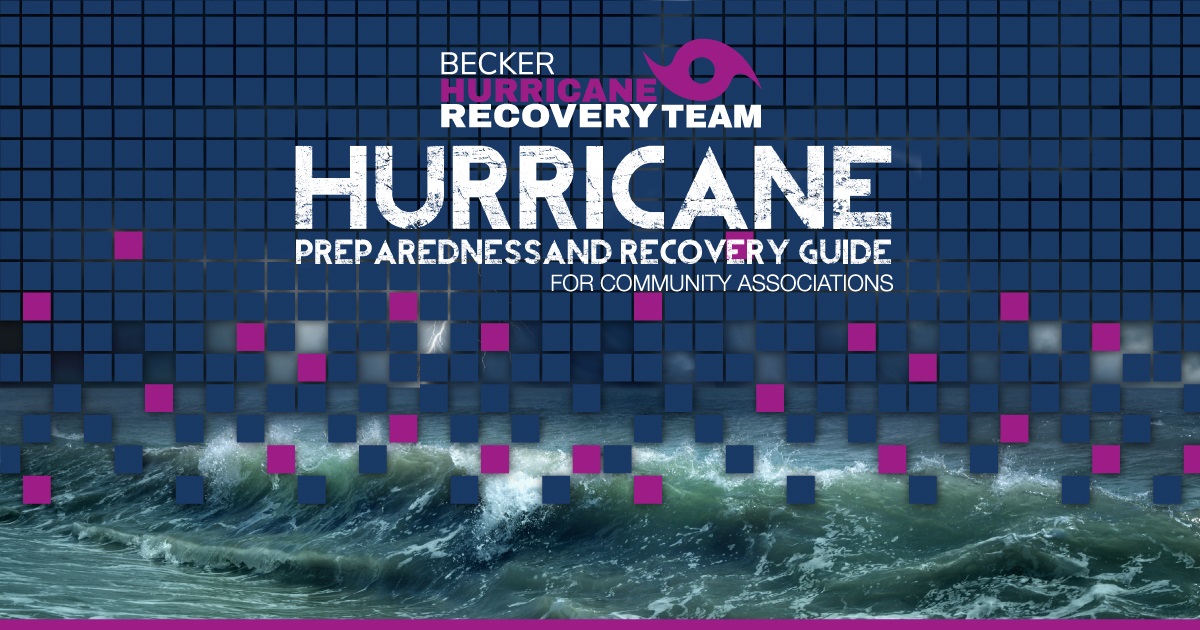Hurricane season is here. Time to get ready, and then stay ready. Also check out the Question of the Month to see what impact COVID and Zoom calls have had on board meetings, our deep dive into how the Real Housewives handle their taxes, and a tidy summary of how Florida’s 2022 legislative session will affect Community Associations.
The big news this month is the adoption of Bill SB 4D, the new law addressing building safety. We expect this topic to remain center stage for quite some time and will continue to frequently cover it in future issues of our Community Update Newsletter. Read the first of our special reports on this topic here.
Hurricane watches, hurricane warnings, and storm surges. Are you prepared? Jennifer Biletnikoff goes into detail about what you might need in “The Worst Storm Is the Storm You Didn’t Prepare For.”
Managing a community association can be a minefield, especially when it comes to issues like violations, amendments, and contracts. Robyn Severs offers up her “Top 10 Manager Dos And Don’ts” to guide you through.
There are a number of issues to consider before installing video cameras for your community. Robyn Severs discusses in, “Best Practices for the Use of Video Cameras.”
Lastly, language used in covenants is at the heart of “THIS CASE. Heath v. Bear Island Homeowners Association, Inc.” from Jay Roberts.
EDITORS
NEW LAW ADDRESSES BUILDING SAFETY

The Florida Legislature approved the “Surfside Legislation” in its recent Special Session. Bill (SB 4D) was adopted unanimously and with little debate by the Senate or House and was signed into law by the Governor on May 26, 2022. The new law includes significant obligations related to building inspections and reserve funding and boards who do not comply in a timely fashion will be in breach of their fiduciary duties. Here are some of the highlights of the 88 page Bill, which is somewhat complicated and will need to be studied, digested, and fully understood.
Becker will host numerous forums to educate Community Associations on these significant changes and will consult with the foremost industry experts to share perspectives on how to implement the new safety requirements according to best practices. Click here to sign up to receive advance notice of these special programs. We expect these sessions will be wildly popular. Register early to secure your seat.
If a condo or cooperative building is 3 or more stories high, a “milestone inspection” must be performed by a licensed architect or engineer. That inspection must occur within 30 years from the date of the Certificate of Occupancy (“CO”). However, buildings within 3 miles from the coastline must perform that inspection within 25 years of the CO date.
If a condo or cooperative building is 3 or more stories high, a “milestone inspection” must be performed by a licensed architect or engineer. That inspection must occur within 30 years from the date of the Certificate of Occupancy (“CO”). However, buildings within 3 miles from the coastline must perform that inspection within 25 years of the CO date.
Any building which received a CO before July 1, 1992, must complete the first milestone inspection by 12/31/24. Associations will have a deadline to perform a “Phase 1” inspection.
A Phase 2 inspection, which might involve destructive testing, is required if structural deterioration is noted.
The engineer or architect performing either a Phase 1 or Phase 2 inspection must prepare a written inspection report. The report must be sealed and have a separate summary pointing out its material findings. The report must be given to the association and the local building official. The association must then distribute the report to all unit owners and post a copy of the summary in a conspicuous place on the property. The association must also post the full report on its website, if the association is legally required to have a website.
The new law gives local building officials discretion to prescribe timelines and penalties for non-compliance. County commissions may adopt ordinances establishing timelines for necessary repairs identified in a report, and such repairs must be commenced within 365 days after receiving the report.
The new statute requires a “structural reserve study,” and requires that these reserve studies be maintained as part of the official records of the association for 15 years, the same as for the milestone inspections discussed above.
The reserve schedule must include any items identified in a newly required “structural integrity reserve study.” The initial study must be completed by 12/31/24 and must be performed at least every 10 years for buildings 3 stories and higher. Effective 12/31/24, an association may not vote to waive or reduce reserves for the items listed in the structural integrity reserve study.
The structural integrity reserve study must include: roofs; load bearing walls or other primary structural members; floors; foundations; fireproofing and fire protection systems; plumbing; electrical systems; waterproofing and exterior paint; windows; and any other item which exceeds $10,000 in deferred maintenance cost and which was identified by the engineer or architect performing the inspection portion of the structural integrity reserve study.
The Worst Storm Is the Storm You Didn’t Prepare For
With hurricane season quickly approaching, it is important that you prepare for the worst (and hope for the best)! Hurricane season is June 1 through November 30. This article will provide tips to help prepare your 2022 hurricane preparedness guide, as well as provide actions that you can take before a hurricane makes landfall. The time is now to prepare your community for every possibility.
By: Robyn M. Severs
Managers and directors are faced with many decisions while operating and managing community associations. To be effective, it is important to prioritize which issues must be addressed, and in what order, and to be able to determine which matters need to be referred to legal counsel for further direction. Below is a list of “dos” and “don’ts” that will aid both managers and directors in making such decisions.
Best Practices for the Use of Video Cameras
By: Robyn M. Severs
Many associations now install security cameras on the common areas to guarantee video evidence of any intentional vandalism or negligent actions which result in damage to the common areas, such as a vehicle running into the gate of a gated community. Some associations want to install security cameras as a way of deterring criminal acts or violations of the governing documents. Before you start the installation process for your association, be sure that you are following the right process.

Heath v. Bear Island Homeowners Association, Inc.
76 So.3d 39 (Fla. 4th DCA 2011)
The importance of how language is drafted in covenants is at the heart of THIS CASE. Heath, a resident of Bear Island and as such a party to the Declaration of Covenants and Restrictions (“Declaration”), filed a lawsuit for injunction against the association and one of its directors. In the lawsuit, Heath accused the association of failing to enforce the terms of the Declaration as to certain homeowners. Heath provided the trial court with a list of other residences in Bear Island which he claimed had changes, modifications, or improvements that were made without first seeking the Association’s approval, in direct abrogation of the Declaration’s requirement that changes first be approved.
Article XII of the Declaration, entitled “Enforcement of Declaration,” stated, in pertinent part:
The enforcement of this Declaration may be by proceeding at law for damages or in equity to compel compliance with its terms or to prevent violation or breach of any of the covenants or terms herein. The Developer, the Association, or any individual may, but shall not be required to, seek enforcement of the Declaration.
Due to the emphasized portion in Article XII, both the trial court and appellate court held that Heath could not establish a clear legal right for the issuance of an injunction because the Declaration gave the association discretion with respect to enforcement of violations, and thus ruled in favor of the association.
What is important about THIS CASE? Words matter. The Declaration is a contract, and courts seek to give contractual language its plain meaning. In the instance of this Declaration, the plain language clearly stated that the association had discretion with respect to enforcement measures. While the facts worked out for the association in this lawsuit, there are two other practical takeaways. First, discretionary language is not common in most covenant enforcement provisions. Second, even if the covenants contain discretionary enforcement language, failing to uniformly enforce restrictions could lead to legal defenses being proffered by a violator when the association feels it necessary to take enforcement actions. It is always important to discuss potential covenant enforcement actions with the association’s legal counsel prior to taking action or deciding not to take action.
Question of the Month
Q: Now that we are no longer under the COVID state of emergency in Florida, can a homeowners’ association hold “Zoom only” board meetings or are they required to have an announced meeting venue where owners can attend in person?
CALLING ALL BOARD MEMBERS AND COMMUNITY MANAGERS
As leaders in Community Association Law, we not only helped write the law – we also teach it.
Did you know Becker provides over 200 educational classes per year throughout the State of Florida on a variety of topics ranging from board member certification to compliance, and everything in between? Our most popular classes are now available online!
To view our entire class roster, visit:
beckerlawyers.com/classes
As a service to the community and industry, we are pleased to offer some of our most popular classes online for you to participate in from the comfort of your own home.
- Turnover From Developer Control
- Insights Into Your Role as a Board Member: Fiduciary Duty & Business Judgement Rule
- 2022 Legal Update
- Anatomy of a Water Leak
- Budgeting & Reserves
- Collection and Foreclosure Strategies for Community Associations
- Condo Board Member Certification
- Construction Road Map for Community Associations
- Top 10 Manager Do’s and Don’ts
- Construction Contracts and the Lien Law
- Construction Projects Gone Wild
- Dealing with Difficult People
- Disaster Preparedness and Recovery
- HOA/Condo Board Member Certification
- How to Properly Run an Election
- Take a Bite out of Fraudulent Assistance Animal Requests
- Understanding Our Bylaws
The Real Housewives Meet the Internal Revenue Service
James J. Mahon, Esq. and Samantha A. Lesser, Esq.
The Maserati was leased, but never reported. Forty thousand dollars a month was paid to a glam squad to “perfect a look” for housewives dining out on an ordinary Tuesday evening. The ostentatious spending—and the outsized personalities that that it accompanies—attracted an audience that very few want: the IRS. In all its variations, The Real Housewives have had some serious legal trouble behind the scenes, but in an ironic plot twist that even the producers would envy, one of the best lines of legal defense to the stars’ tax woes calls into question the very realness and “reality” that is the show’s premise.
The New Fannie Mae and Freddie Mac Lender Questionnaire: To Answer, or Not to Answer, That is the Question!
CAI NJ Community Trends
David L. Dockery, Esq.
Prompted by the Champlain Towers Condominium collapse in Surfside, Florida, the Federal National Mortgage Association (“Fannie Mae”) and the Federal Home Loan Mortgage Corporation (“Freddie Mac”) recently issued new temporary requirements as an attempt to mitigate risk in community association loan underwriting. Many other industries within the community association world, such as insurance, have adjusted costs and guidelines in an effort to mitigate risk due to the unprecedented tragedy.
Impact of 2022 Legislative Summary on Community Associations
FCAP Managers Report
The 2022 session of the Florida Legislature was statistically slightly above average with 1700 bills considered in its 60-day session. A total of 238 bills were passed by both houses and will be presented to the governor for his signature. Thirty bills were filed that could have impacted community associations. For residents of condominiums, the most significant impact of this legislative session is found in what did not pass.
Can They Do That?
Becker’s “Can They Do That” video series tackles some of the unique problems that homeowners and renters face today. We answer your questions, no matter how far-fetched they may seem. From service animals to nudists in your community, we get to the bottom of it and let you know – “Can They Do That?”
Becker Steps Up to the Mic with Podcast,
‘Take It To The Board with Donna DiMaggio Berger’
Becker is thrilled to announce the launch of its community association-focused podcast, Take It To The Board with Donna DiMaggio Berger. For decades, our firm has served the legal needs of this industry through in-person conferences and roundtables, online educational webinars, in-depth blog posts, and easy-to-understand legislative updates; we are delighted to continue the conversation on yet another platform. Join us today!
CURRENT EPISODES:
- Royal Service with James Donnelly
- Fiscal Finesse with Nicole Johnson-Pendergrass
- Nuisance or Necessary: Solving the “Pet” Problem with JoAnn Burnett
- The Technology Tango with Brett Fielo
- Community Immunity with David Ramsey
- Considering the Cost of Counsel with Denise Lash
- Rules & Refereeing with Howard Perl
- The Mental Health Challenge with Chris Ayub
- Reserve Funds & Studies with Robert Nordland
- Association Advocacy with Commissioner Mary Molina-Macfie
- The Job of the Journal with Michael Hamline
- HR Hacks with Jamie Dokovna – Part 1
- HR Hacks with Jamie Dokovna – Part 2
- The Art of Community Design with Patty Mowry
- Heart of Service with Stephanie Maher
- The Making of a Manager with Otto Freund
- Happy Holidays, Healthy Communities with Andrew Fortin
- Ensuring Community Association Safety with Platinum Group Security
- Building Basics with Construction Counsel Patrick Howell
- Keeping Cool with Jane Gilbert, Chief Heat Officer, Miami-Dade County
- 2022 Legislative Session in Florida Wrap Up with Yeline Goin, Becker & Poliakoff
- The Current Crisis with Florida’s Real Property Insurance with Andrea Northrup, Vice President of Insurance Office of America (Part 1)
- The Current Crisis with Florida’s Real Property Insurance with Andrea Northrup, Vice President of Insurance Office of America (Part 2)
- The Smoker’s Dilemma with Dennis Eisinger of Eisinger Law
- Assessing Collections with Joy Mattingly, Becker & Poliakoff
DID YOU KNOW?
June 1 Marks the Start of Hurricane Season
Community Association boards and managers should ensure that their communities have adequate disaster planning measures in place as hurricane season approaches. To help you in weathering the storm, check out Becker’s Hurricane Guide which provides important tips and information to help protect your community.





